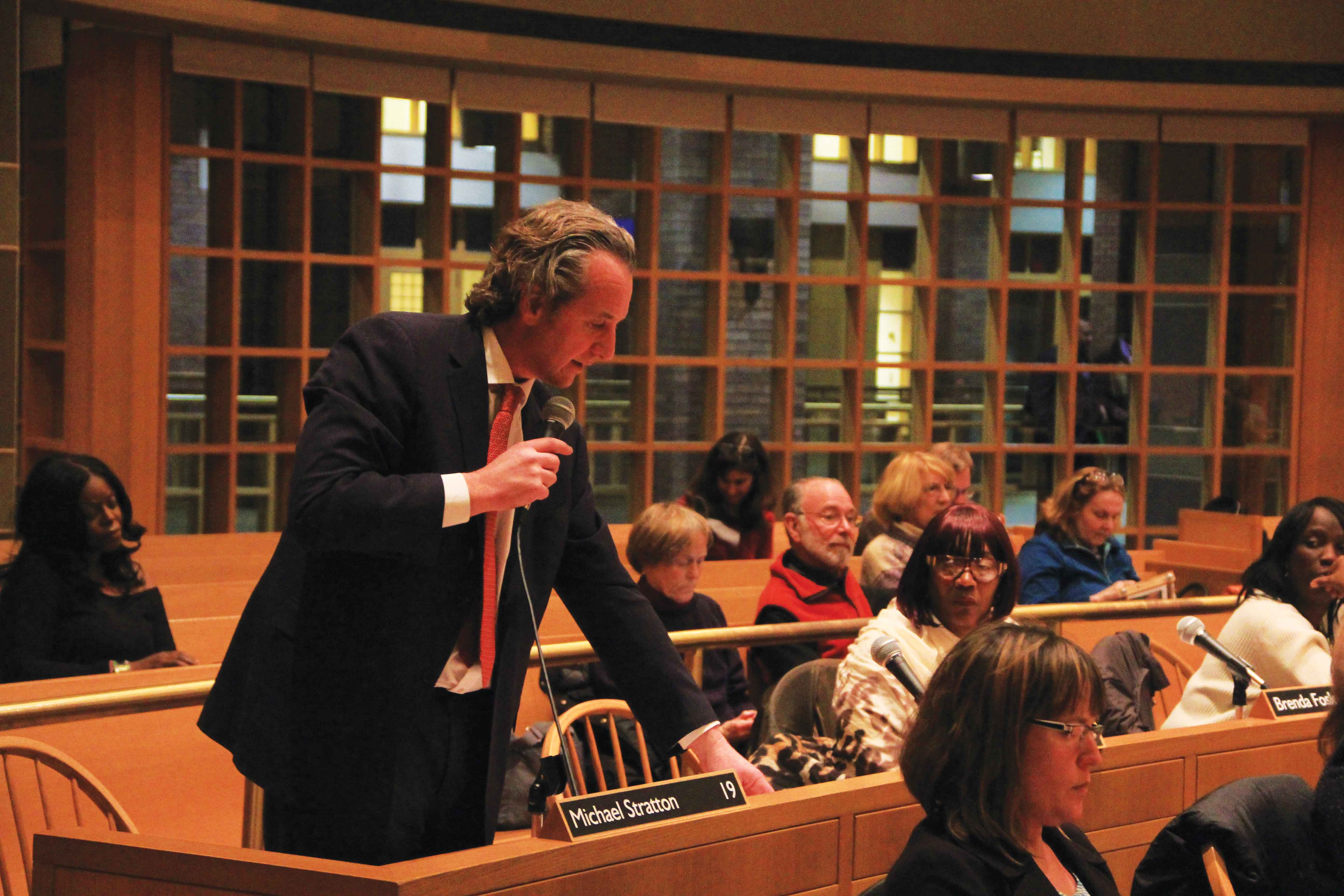
As Mayor Toni Harp prepares to submit a city budget proposal to the Board of Alders by the end of this month, she hopes to balance the city’s budget for the fourth consecutive year. But 2017 could be her largest challenge yet if the state Legislature approves proposals that would shift large payment responsibilities from the state to municipalities.
Earlier this month, Gov. Dannel Malloy announced to the Connecticut Legislature that he was considering making municipalities pay for roughly one-third of teacher salaries and pensions. If the move is approved, it will transfer responsibility for just over $400 million in payments from the state government to Connecticut cities and towns. New Haven alone would have to pay an additional $15 million this year, or roughly 3 percent of the expected city budget for the upcoming fiscal year, according to city spokesman Laurence Grotheer.
Grotheer said that if this proposal is included in the final version of the state budget, which will be voted on this summer, and the state does not provide the city with new methods of raising revenue, it will be harder for Harp to balance the budget. When asked whether the move could force the mayor to lay off city workers or cut funding to city services, Grotheer said it is hard to rule anything out at this point.
Another potential addition to this year’s state budget is a tax on Yale New Haven Hospital. But Grotheer said the mayor is not sure taxing the hospital is the best way to address the city’s revenue needs.
Payments to teachers might not be the only problem New Haven faces during the upcoming fiscal year. Grotheer explained that the mayor had concerns regarding the level at which the state will refund the Payment in Lieu of Taxes program, which the state provides to the city to compensate for the revenue from taxes it loses from hosting tax-exempt institutions like Yale University. Still, he added that she remains hopeful the city will continue to receive the necessary support for public education from Hartford.
But an increase in payment burdens footed by municipalities would especially hurt cities such as New Haven, according to Ray Noonan, an associate policy fellow at Connecticut Voices for Children, a New Haven-based advocacy group. Noonan explained that cities such as New Haven and Hartford have larger numbers of nontaxable institutions than other towns, meaning that individual households have to be taxed more heavily to raise additional funds for the city.
In January, Noonan’s group published a proposed state budget that would take some of the burden off of cities and transfer it to wealthier towns and suburbs in hopes of addressing this problem. The plan, based on Vermont’s system of public education funding, would allow each district to decide how much it would like to spend per student and then to be taxed at a fixed rate given its level of desired spending. Thus, if New Haven and a wealthier district like Greenwich both wished to pay $12,000 per student in a given year, both would pay the same rate, but because Greenwich has higher property values than New Haven, Greenwich would pay more at this flat rate.
Noonan praised the “equal effort, equal spending” model, as he called it, for giving municipalities the freedom to continue to choose how much of their money will go to public education while also creating an egalitarian system of adjustable tax rates. But he acknowledged that convincing the state Legislature to approve such a plan was “a moon shot.”
Grotheer said the mayor examined Connecticut Voices for Children’s proposal, adding that Harp will work at the state level in the coming months to shift the onus of teacher payments and other expenditures from cities like New Haven back to the state.
The mayor is facing a strict March 1 deadline to submit a final budget proposal to the Board of Alders, but the state budget is not expected until early June, according to state Rep. Roland Lemar, D-New Haven. Lemar added that meetings to adjust and finalize the state budget will not occur until late March.
Harp will amend her own budget throughout this period in order to match developments in Hartford, Grotheer said.
The city’s budget last year was just over $525 million.







